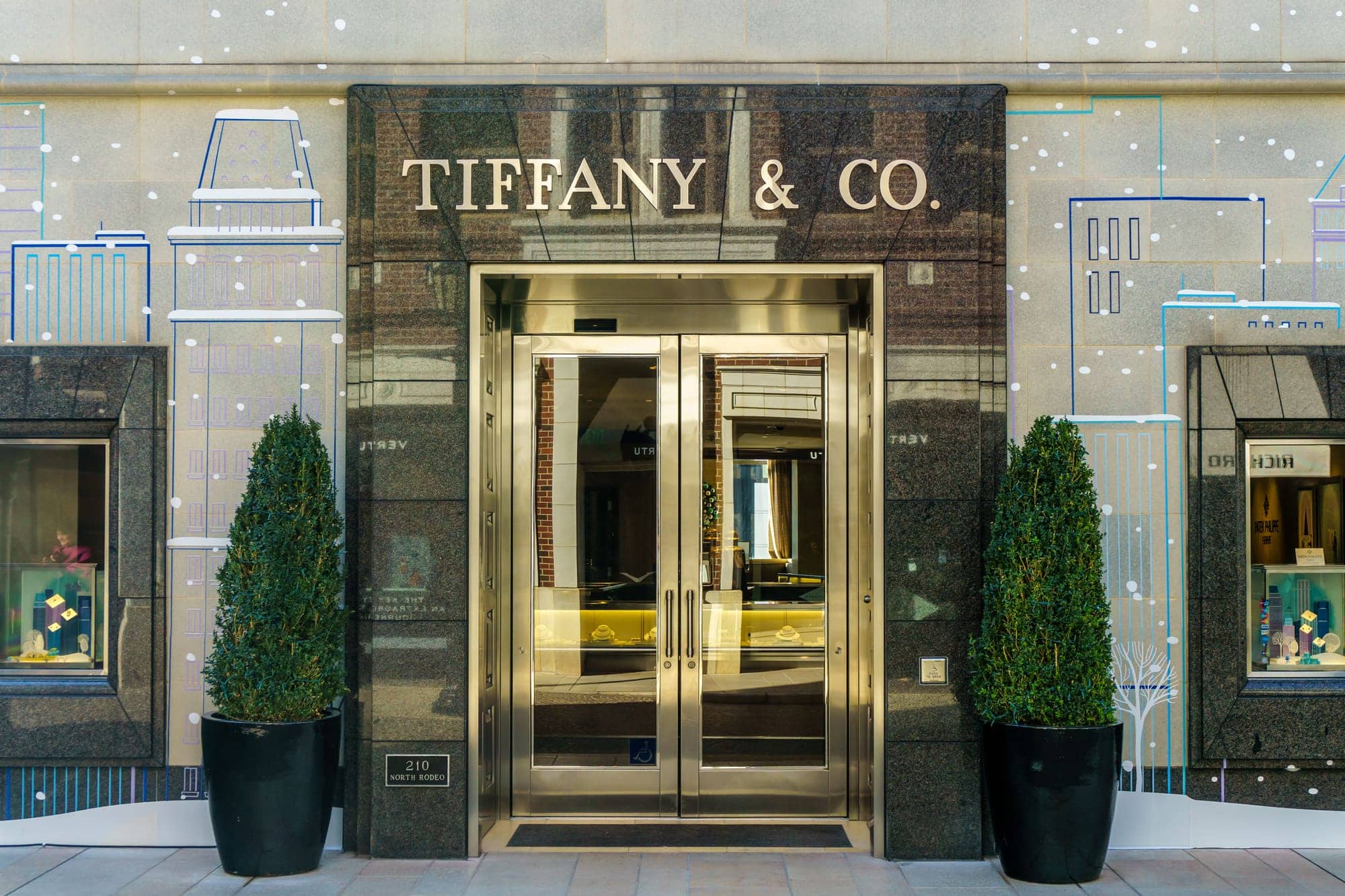
Share
As Luxury Goes Digital, High-end Brands Bolster E-commerce Presence
In Los Angeles County’s Beverly Hills, Rodeo Drive is a popular tourist destination, well known for the display of luxury and high-end items. Of course, as you are probably aware, these items fall in a price range that frankly doesn’t fit into just any average person’s budget.
Luxury clothes, bags, jewelry and the like are put on display for passersby to see, many of which have no intention of pulling the trigger on a purchase. If anything, a lot of these items are aimed to attract window shoppers and those aspiring to one day afford these things.
Maybe after hitting the lottery. Or finding a suitcase full of cash somewhere.
The real estate in these areas is highly coveted, pricey, and simply put, the barriers to entry for “setting up shop” right in the middle of downtown Beverly Hills are high. Maintenance and keeping even a moderately large inventory is expensive.
Rodeo Drive ranks second among the most expensive U.S. retail streets, trailing only upper Fifth Avenue in New York, the commercial brokerage Cushman & Wakefield said in a report in 2015. Fifth Avenue rents range from $1,000 to $3,500 a square foot.
Now, that was back in 2015. These prices have certainly increased even since then.
It could be argued not having a brick and mortar establishment on or around Rodeo almost decreases the credibility of a luxury brand. Even if your shop in Beverly Hills isn’t necessarily making as many sales as you’d like, it’s really more of a marketing ploy to say you’re there.
Luxury brands, let me introduce you to 2020. The year of Coronavirus and shelter-in-place orders. Rodeo Drive and many similar locations worldwide have closed. Or at the very least have stopped operating to the extent they once did. Now what?
Without malls and major shopping areas open and the ability to sell directly to the consumer in person, a dramatic shift has occurred. An already inevitable move to digital luxury shopping experiences has been sped up. Luxury brands aren’t known for moving very quickly, especially when it comes to modernizing their shopping experiences.
There are also boutiquey luxury brands that certainly don’t have the budgets of Gucci, Louis Vuitton, and Prada but still have a high price tag. Where do these brands fit into the equation? And how can they succeed without spending way too much on commercial real estate?
Enter e-commerce. With reviews, ratings, easy comparison between products, the ability to do your shopping in the comfort of your own home, and significantly less overhead, luxury brands should have gravitated to this new normal years ago.
But for better or worse, it was COVID-19 that moved some of these slow-moving luxury brands to digital shopping experiences. And many of them are likely to stay.
According to Director of Technology at Advertise Purple Rowland Hazard, our team has seen firsthand how the affiliate channel can help luxury brands navigate the e-commerce realm successfully. He comments:
“Advertise Purple and our luxury customers have flourished in this new environment; in June alone, these customers averaged an order value over $200 and combined total revenues exceeding $1,600,000. These big ticket brands also saw a conversion rate of 1.77%, which is more than double the industry average.”
Even previous events and trade shows went digital, and saw a good deal of success.
Christina Fontana, head of Tmall’s fashion and luxury division in Europe put together a luxury event on April 25 called ‘Watches and Wonders’. The event normally happens in person. The event drew in 800,000 viewers. Brands including Panerai and Cartier showed over 100 new models, which were immediately sold online after the livestream.
“One of the things that’s changing is that a lot of luxury brands that have been resistant to digital commerce are realizing that it’s here to stay,” Fontana said. “Obviously, physical shopping isn’t going away, but a lot more luxury brands are becoming more open to e-commerce.”
The biggest challenge to luxury items being sold online is that there is a little bit of perceived hesitancy to pull the trigger on an item as expensive as that without touching and seeing it in person. This event put on by Tmall disproved that.
Tmall has seen a number of brands, like Coach, Diesel and Moschino, eagerly jumping onto its newly-launched off-price e-commerce platform Luxury Soho which launched in May.
Luxury e-commerce platform Farfetch has seen its stock jumping regularly since the pandemic began, including a 12% spike during the week of July 5, as analysts have predicted the company will come out even stronger after the pandemic.
“In the future, digital transactions are expected to represent a significantly larger proportion of the overall luxury industry,” said Jose Neves, CEO of Farfetch, referencing a McKinsey stat that said luxury’s e-commerce sales will likely double in the next five years. “The current situation, with current store closures and travel restrictions, may serve to further accelerate the secular shift to online shopping.”
So, yes, it took a global pandemic to move some of these well-established luxury brands to realize they should commit more firmly to e-commerce. That’s a bit drastic, but we’re currently living in a time when many online marketing methods are doing incredibly well.
As affiliate marketing continues to grow, we expect the luxury brands we already work with to increase their revenue and we also are likely to onboard new brands as well. We’re looking forward to moving their consumer bases off Rodeo Drive and onto their laptops.
If interested, please contact us at [email protected]. We’d love to help!





